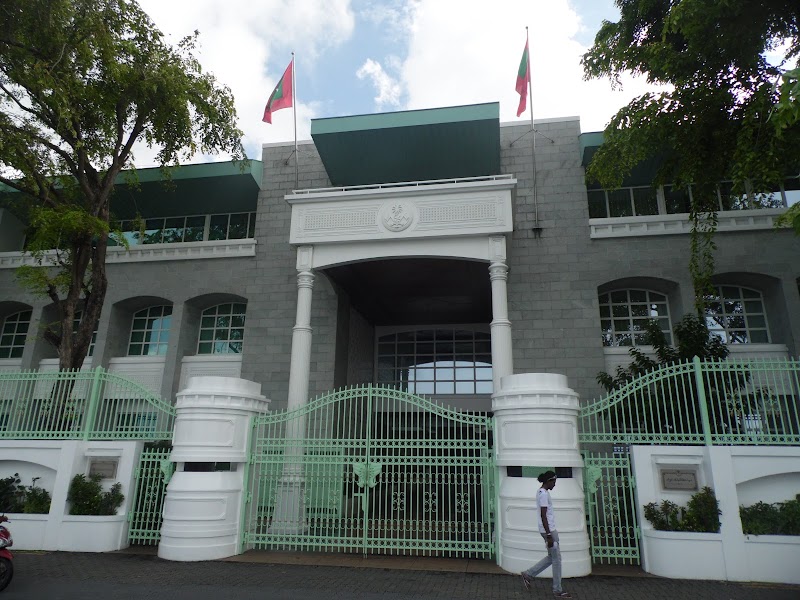Ibrahim Nasir, commonly known as President Nasir, holds the distinction of being the first President of the Republic of Maldives, serving from November 11, 1968, to November 11, 1978. His presidency marked a pivotal period in the nation’s history as he led the Maldives from a British protectorate to a fully independent republic.
Born on September 2, 1926, in Male, Ibrahim Nasir belonged to a prominent Maldivian family with a history of political involvement. He received his education in Male before pursuing higher studies in Sri Lanka and Egypt. Upon his return to the Maldives, Nasir entered politics and quickly rose through the ranks, holding various ministerial positions before becoming the Prime Minister in 1957.
As Prime Minister, Ibrahim Nasir played a crucial role in securing independence for the Maldives from British rule. Through skillful negotiations and diplomatic efforts, he led the country to full sovereignty on July 26, 1965, ending centuries of foreign influence. Nasir subsequently assumed the presidency on November 11, 1968, after the Maldives became a republic.
- Background and History:
- Born on September 2, 1926, in Male, Maldives.
- Received education in Male, Sri Lanka, and Egypt.
- Entered politics and held various ministerial positions.
- Became Prime Minister in 1957.
- Achievements and Legacy:
- Led the Maldives to independence from British rule in 1965.
- Became the first President of the Republic of Maldives in 1968.
- Established diplomatic relations with several countries.
- Introduced numerous reforms, including the establishment of a national bank and a central planning organization.
- Promoted economic development and infrastructure projects.
During his presidency, Ibrahim Nasir embarked on a series of reforms and modernization initiatives. He established a national bank, a central planning organization, and introduced various economic development projects. Nasir also played a pivotal role in promoting tourism in the Maldives, recognizing its potential as a significant source of revenue and employment. His vision and leadership laid the foundation for the country’s future economic growth and prosperity.
Ibrahim Nasir’s legacy extends beyond his political achievements. He is remembered as a charismatic and forward-thinking leader who transformed the Maldives into a modern nation-state. His dedication to his people and his unwavering commitment to the development of the country earned him widespread respect and admiration. President Nasir passed away on November 22, 2008, leaving an enduring legacy as a statesman who shaped the destiny of the Maldives.
Emblem of Maldives
To enrich your insights into presidential figures worldwide, also explore some prominent first presidents from other countries, such as Malaysia, Malawi and Madagascar. Delving into the leadership journeys of these figures can offer valuable perspectives on their historical significance and pivotal roles in shaping global politics.
The official residence and symbol of the Maldives President
10 Iconic Presidents Who Shaped Maldives’s History

Maldives is a country in South Asia that has had a number of notable presidents who have played a significant role in shaping the country’s political landscape. Here are 10 of the most popular presidents from Maldives:
- Mohamed Amin Didi (1953-1954): He was the first President of Maldives and played a crucial role in the country’s transition to a republic.
- Ibrahim Nasir (1968-1978): Nasir is considered one of the most influential presidents of Maldives. He is credited with modernizing the country’s infrastructure and establishing the tourism industry.
- Maumoon Abdul Gayoom (1978-2008): Gayoom is the longest-serving president in the history of Maldives. He introduced economic reforms and promoted environmental conservation.
- Mohamed Nasheed (2008-2012): Nasheed became the first democratically elected president of Maldives after the end of Gayoom’s authoritarian regime. He focused on combating climate change and promoting human rights.
- Mohamed Waheed Hassan (2012-2013): Waheed assumed office after Nasheed’s resignation. He played a key role in the transition to democracy, overseeing the first peaceful transfer of power from one president to another.
- Abdulla Yameen Abdul Gayoom (2013-2018): Yameen is the half-brother of former President Maumoon Abdul Gayoom. He implemented economic reforms and infrastructure projects during his tenure.
- Ibrahim Mohamed Solih (2018-present): Solih is the current president of Maldives. He won the presidential election in 2018 and has focused on strengthening democracy, improving governance, and promoting sustainable development.
- Koli Mohamed (1988-1988): Mohamed became president for a brief period after a coup ousted President Gayoom. He played a crucial role in restoring order and stability in the country.
- Ibrahim Shihab (1988-1988): Shihab was the successor of Koli Mohamed and served as the President of Maldives for a short span of time. He played a key role in initiating democratic reforms.
- Ahmed Zaki (1988-1989): Zaki succeeded Ibrahim Shihab and focused on rebuilding the country after a period of political instability. He introduced economic reforms and implemented policies to improve education and healthcare.

